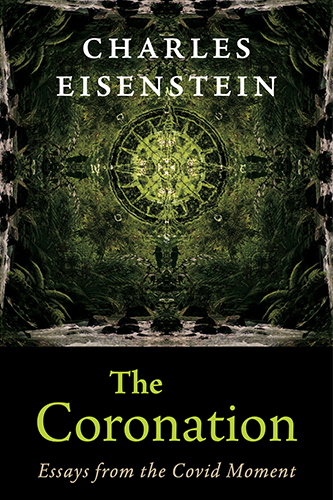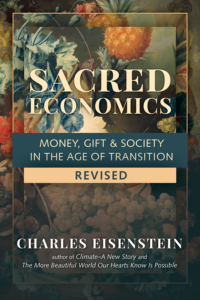Climate — A New Story
Chapters
Chapter 3: The Climate Spectrum and Beyond
The Wrong Debate
I’m sure by now you are impatiently awaiting my opinion as to which side is right, ready perhaps to breathe a sigh of relief when I excuse the foregoing as an intellectual exercise and assure you that of course, I do believe in climate change. Which side am I on? Okay, here is a summary of my opinion, which I will elaborate throughout this book:
We are in fact facing a very serious climate crisis. However, the main threat is not warming per se; it is what we might call “climate derangement.” This derangement is caused primarily by the degradation of ecosystems worldwide: the draining of wetlands, the clear-cutting of forests, the tillage and erosion of soil, the decimation of fish, the destruction of habitats for development, the poisoning of air, soil, and water with chemicals, the damming of rivers, the extermination of predators, and so on. Through disruption of the carbon cycle, the water cycle, and more mysterious Gaian processes, these activities degrade the resiliency of the ecosphere, leaving it unable to cope with the additional greenhouse gases emitted through human activity. The result may or may not be continued global warming, but it is certain to bring increasingly wild fluctuations not only in temperature but also, more importantly, in rainfall. (This may already be happening, as evidenced by the recent spate of record hot and cold temperatures in various places around the world.)
Standard climate theory gives primacy to CO2-induced radiative forcing as the cause of climate change, relegating ecosystem degradation to secondary status. In standard climate theory, radiative forcing (the greenhouse effect) warms the atmosphere by only a little over 1 degree Celsius for each doubling of carbon dioxide. That by itself gives little cause for alarm. What is alarming is the potential amplification of this heating through a host of positive feedbacks. I will argue that these depend much more on biological processes than we have realized. When biological systems are degraded, they lose their ability to adapt to changing climate and to maintain stable conditions under which they can thrive.
The problem with the climate debate then, is primarily one of misplaced emphasis. Whether average global temperatures are increasing is not the main issue. We are engaged in the wrong debate. Climate derangement will continue even if we stop emitting carbon, and it will bring calamity even if average temperatures remain constant. That is because Earth is a living body, not a machine, and we have been destroying its tissues and organs.
Anthropogenic climate derangement began long before the industrial era, primarily through deforestation and soil erosion. In the last centuries these have reached industrial scale, while greenhouse gas emissions present a whole new challenge that a seriously degraded biosphere is poorly prepared to meet.
Let me put my thesis starkly:
If the standard narrative of AGW is true, then the most urgent priority is to protect and restore soil, water, and ecosystems worldwide.
If the standard narrative of AGW is false, then the most urgent priority is to protect and restore soil, water, and ecosystems worldwide.
One purpose of this book is to justify these assertions, and to describe the shift in perception and mythology that will support their enactment.
As for the normative climate debate, on the most primal level my sympathies are with the alarmists. Whatever the flaws in their data, arguments, and models, the basic alarm that animates their fervor is well founded. If average temperature stops rising or reverses, we should be no less alarmed. Moreover, the characterization of skeptics as “deniers” also has a core of truth. But it isn’t their skepticism about the science that makes them deniers; it is the denial of the ecological holocaust, the decimation of Earth’s biological wealth and vitality.
It’s like this: Suppose I were infected with a flesh-eating bacteria that is killing me, and everyone is arguing over whether I have a fever or not. Those who say “Yes, he has a dangerous fever. We’d better take care of him” are closer to the truth than those who say “He doesn’t have a fever, so he must be fine.” Now, my condition might indeed be accompanied by a dangerous fever, and it might make sense to take down the fever. But if the flesh-eating bacteria is not stopped, I will die soon anyway, whether by fever or something else. For the planet, the flesh-eating bacteria is the global financial system, and underneath it the Story of Separation. Development and extraction are devouring the world.
If you are a climate skeptic reading this book, I want you to snap out of your denial. That doesn’t mean getting on board with climate science. It means opening your eyes to the ruin of so many precious places, to the wounds of strip mines and oil spills and toxic waste sites, to destruction of habitats and species, to the impoverishment of life on earth. It means feeling the agony of this planet, taking it in, and doing something about it.
In my lifetime the number of monarch butterflies has dropped by 90 percent. Fish biomass has dropped by more than half. Deserts have expanded to an unprecedented extent. Coral reef extent has declined by half. Mangroves in Asia have declined 80 percent. The Borneo rainforest is nearly gone. Rainforests globally cover less than half their former area. Thousands of species have gone extinct. All that is real, and it is just a trace of the degradation afflicting this planet. Be alarmed. We cannot lose many more of the planet’s organs and tissues before calamity strikes.
If you are a climate alarmist, I applaud your alarm and ask you to shift its focus. Alarm needn’t depend on whether human survival is threatened. To me the prospect of humanity persisting on a dead, denuded planet is more alarming than a future without humans. How would you like to be the sole survivor of a holocaust in which all your friends and family perish? “What will happen to us?” is, I will argue, too small a question, and the kind of alarm that comes from it is too narrow and, in the end, counterproductive.
Whichever side you are on, I’d like you to hear a different alarm. It is about the dying of life on this planet. Have you noticed as I have a marked decrease in windshield bug splatter when driving? When I was a kid, I remember the windshield being covered with bug splatter. I wondered if it was memory that was faulty, until I read a twenty-seven-year study documenting a 78–82 percent decline in flying insect biomass in protected nature reserves.[30] It is a thorough, extensive, and scrupulous study that echoes similar findings around the world.[31]
If I were in charge, this study would be a screaming front-page headline. Insects were the first animals to colonize land, arriving around the same time as plants. They are crucial to every terrestrial food chain. Insects are woven deeply into life. Fewer insects means less life. It means the planet is becoming less alive. Let me rephrase that: It means the planet is dying.
No one knows the cause, but the authors note that it probably isn’t warmer temperatures, as these correlated during the study period to more insect biomass not less. They cite chemicals and diminished habitat in nearby farmland as possible causes. I think that is likely, and that a deeper cause lurks underneath. It is that we are not treating the world as alive and sacred.[32] We have not acted in service to life. We have instead seen the rest of life as the servant of man. That is what wants to change. The ecological crisis provides the initiatory medicine for the world’s dominant civilization to make that change. The crisis will intensify until the medicine has been fully received.
End Notes
[30] Hallmann et al. (2017).
[31] For an introduction to other research documenting the insect apocalypse, see Hunziker (2018).
[32] By “we” here, I mean the dominant civilization. To the extent that you participate in it, that “we” also includes yourself, even if you dissent from its systems and beliefs with all your heart.






